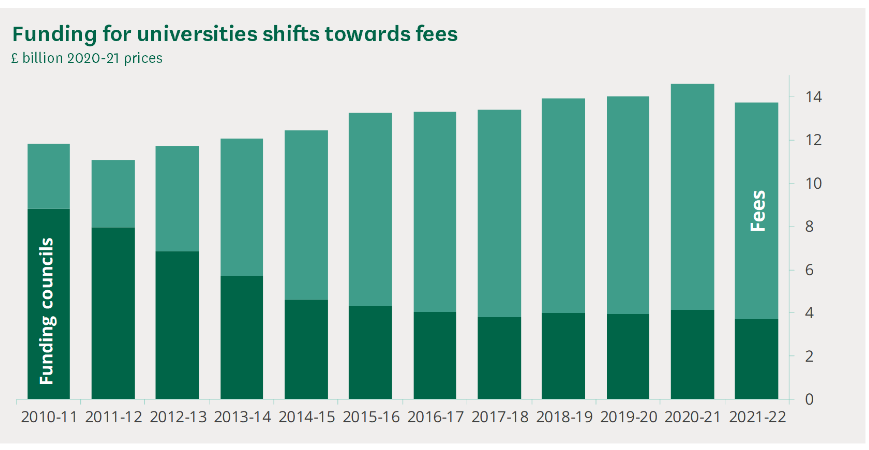Leaderboard
Popular Content
Showing content with the highest reputation on 04/14/23 in all areas
-
Your mind harks back to the last interesting thing that happened in your life. As time passes your memory tends to just string together the interesting parts and ignore the boring inbetween bits.... interesting to you that is. What we then do is put all these interesting evehts in sequence, removing the gaps. So, say you did something memorable in 2015 and then you plodded along for a few months/years, then had another memorable experience, only those two items in that period were memorable to you are likely to be remembered via long term memory far down the line of time. For things to be memorable in the long term, they need to have a significant impact on you in some way, such that that they impress on your memory more persistently. If an event doesn't alter your level of mood, say, then it will likely go down the memory toilet. What we are actually forgetting is the mundane, routine bits because they are plastically embedded in our brain and we don't need to remember... those routines are executed automatically. If everything you do is routine everyday, you'll likely feel a deficit of accomplishment when you try to look back... as you do now. The solution is to try and do something everyday that stimulates you and, most importantly, feels novel to you. This can be acheived by learning something that interests you. Also, try and make your life less routine where you can... mix things up abit. The other thing is your age. As we get older we slow down physically and in alertness. The subjective pace of time speeds up as well because of decreasing metabolism, in part. Our personal clock slows down so events seem to flow faster; further exacerbating that feeling of insufficient accomplishent and losing time. Import some novelty into your life and live everyday like it's your last... You should have lots more to remember with shorter gaps between significant memories. Most people go through your situation at some point, particularly near 40. This is how I've addressed this to myself over the years. I'm 61 now.3 points
-
2 points
-
One thing I have noticed, especially in online diatribes by QAnon believers explaining their ‘research’, is a tendency to rely on a mechanism known as Clanging, or Clang Association. https://en.wikipedia.org/wiki/Clanging Also known as Glossomania or Association Chaining, this is generally regarded as a symptom of a mental disorder often found in patients with Schizophrenic and Bipolar illnesses. It is defined as: “repeating chains of words that are associated semantically or phonetically with no relevant context” This may include compulsive rhyming or alliteration, without apparent logical connection between words. The speaker becomes distracted by homophones, puns, and word-plays in their own utterances, and they fly off down tangential rabbit-holes that take them further and further from their intended topic with each sentence. One example that comes to mind is the incident in March 2021 when a large supertanker collided with the bank of the Suez Canal and blocked it for almost a week. The stranded supertanker was called Ever Given, but it had the name of a Taiwanese shipping company Evergreen painted in large letters on its side. The latter happened to be the Secret Service codename for Hillary Clinton when she was First lady. QAnon believers were wildly triggered when they discovered that this supertanker’s call-sign was H3RC, which was close enough to Clinton’s own initials HRC for them to make a completely spurious clang association. In no time at all, online services such as Telegram and Gab were carrying extensive QAnon threads alleging that the Ever Given was full of child sex-slaves that were part of a dastardly world-wide ‘Deep State’ plot directed by Hillary Clinton in person. The QAnon believers also found a photo of the female captain of the stricken ship who in their opinion bore a slight facial resemblance to Monica Lewinsky - which of course provided them with ‘conclusive proof’ of this entire farrago of nonsense. https://www.politifact.com/factchecks/2021/mar/25/facebook-posts/evergreen-ship-blocking-suez-canal-not-linked-hill/ Random word Association Testing of a similar type was used extensively in the earlier period of the Psychoanalytic movement founded by Sigmund Freud, as a diagnostic tool for mapping the cognitive disorders of neurotic patients. Carl Jung in particular was associated with the development of this psychiatric technique, which was originally inspired by ‘The Psychopathology of Everyday Life ‘ (1901) by Sigmund Freud.2 points
-
No, I was arguing against your sweeping statement that the need for profit always means the product must cost more. In fact, a lot of companies operate on tiny profit margins, and state-owned enterprises can easily end up charging much more for the same thing. I'm in no way arguing for no state bodies. I like our NHS for example, but it does get hugely ripped off from time to time, and for some procedures, it pays private companies, because they just can't compete with them. A lot of the cost of our NHS is political. The governments don't like debt showing against their accounts, so they embarked on private financing of major projects, just to make their accounts look better. The debt is hidden in the contracts, where the private investors get guaranteed risk-free returns for decades. And of course, the opportunities for the friends of the politicians to take a lucrative slice of the action are huge. The NHS blew literally billions during covid lockdowns, on getting masks etc. And periphery friends of the ruling party became fabulously rich overnight, quite often selling useless gear to the NHS. It would never have happened if Bill Gates was running it. Having said that, I don't want the NHS to become private, as you said, some things are better suited to a national system. The US system, with all of the private health insurance companies doesn't appeal in the slightest. One thing I would do, is to massively increase the penalties for fraud. It seems to be treated far too leniently in this country, and the penalties are tiny, in relation to some of the sums involved. There's no real deterrent. It takes huge manpower to prove fraud, and then they just get a slap on the wrist.2 points
-
A bit about this one here. I am a bit uncertain what your precise point is, but the University administration tends to be reactive. I.e. when politics changes the situation, they need to adapt to it. Reducing public spending effectively makes them operate more like companies. And at least for faculty it the outcome is obvious: more financial constraints on students, and a shift towards getting more students in, keep them happy and often that goes at cost of teaching quality. In the old system in Germany (which has changed in the last decades, but still remains free), students had only a limited number of tries to pass tests (which were often applied). So it was not unusual that mandatory chemistry classes would result in >60% of biology students to drop or switch degrees within the first two semesters, which more being weeded out in the subsequent ones. These types of failure rates would be considered inacceptable in paid systems, especially nowadays. I am not that familiar with the UK system, but looking at funding trends, I suspect the same issues as in North America. Compared to that, in other European countries 80-90% of the funds are from public sources. The impact of private spending on quality is actually somewhat well documented. The study is a few years old, but the trend has accelerated: Studies have shown that grade inflation is not only tied to marketizing teaching, but it is also related to monitoring teaching itself. I.e. when teaching outcome is tied to teaching evaluation, it provides incentives for teachers to make their lives easier by simply giving out higher grades. Depending on job security and overall system (i.e. pressure from board, administration, students, parents etc.) the outcome may be more or less pronounced. As a consequence, in Germany grade inflation is also observed, but at a lower degree. The suggestions made by OP do appear to try to introduce similar mechanisms into K12 (though, to be fair, they are already on the way) and I just simply cannot see how emphasizing the bad parts of a system is somehow going to end up beneficial. It is mostly disruptive to the few parts that keep the system limping along.1 point
-
Hello. I am looking for a cheap (ideally lower two digit price) digital thermometer with two or more decimal places for Kelvin/Celsius. It would be nice if the temperature value could be displayed live as a line on a Windows PC or Android device. It is not about high-end lab technology, but rather "Ali"/"Ebay"-. The accuracy is also not primarily important, I am only concerned about fluctuations. And the thermal sensor should not measure the temperature of an object, but only its own (thermocouple) temperature (in a heat-insulating material that protects against drafts). For scales, one-thousandth of a gram is common even for cheap products. Is there such a device also with display of the value and a line graph on Windows/Android? Thanks.1 point
-
1 point
-
This style of conversation delivery doesn't promote continuation; it sucks the oxygen out of it, killing all participants. It is the thermobaric bomb of conversation killers.1 point
-
Just a side note... 10170 - 1080 is definitely not 1090. It is closer to... 10170. 10170 divided by 1080 is 1090. So a full board has 1090 times the positions of a 13 x 13 board.1 point
-
No difference, you are making an assumption on an unknown. Whether that assumption is mundane or sensational is irrelevant. Investigations should assume nothing, and follow all possible paths until each path can be dismissed. Some of those paths can be quickly dismissed or prioritised as lower due to either the cost in time and resources or the least likely based on experience that's fine. But starting with a presumption is not a good investigative tactic. I watched the video, this wasn't the lecture I was referring to. However the content is the same. Thanks As normal you misrepresent what I said to strengthen your own arguments. I said - either incomplete or not quite correct At no point did I say that incomplete was the same as wrong. So what are you trying to argue? If both theories are incomplete then there is something missing, that something will do one of 3 things. It will either supersede one or both models or it will consolidate them. At the same time (speculation time) it may provide a discovery at a deeper level of how the universe works, that is sensational compared to our current understanding. Or it may cement the current models at a deeper level. We know far less about 90+% of the observable universe than we now about the remaining. So if someone was to present you with a theory based on less than 10% of the observed data (already with holes in it) of which appears totally different than the remaining 90+%, stating that they had a complete working model you would laugh the theory out of the room. You make no assumption either way from the start. You gather the evidence you have. You then proceed by process of elimination starting with the easiest simplest, most cost effective lines of enquiry. You then slowly methodically dismiss possibilities and/or put difficult lines of investigation to one side for a later time when all the easier lines of enquiry have been investigated. At the end of the investigation if there is no conclusion, you can either make an assumption based on likelihood or experience, or/at the same time remain open minded about the other possibilities.1 point
-
"Spacetime fabric" is not a physical thing. We are. My wife and I are married. We exist as a team. Does that mean our partnership was inevitable?1 point
-
In a capitalist country? .... In which country? ... In a communist country? Make an non ambiguous request.. then you might be satisfied..1 point
-
Knowing the difference between "refute", "rebut" and "disagree with", and between the singular and plural of criterion, would be a start. 😉 More seriously, surely the criteria for a new teacher are subject knowledge and evidence of the ability to teach, i.e. to motivate pupils to enjoy the subject and be able to show that they have learnt effectively, e.g. by good exam results. (Plus the usual hygiene factors of course.). But is this what you are interested in, or is it what should be in the syllabus? From your previous posts it feels as if the latter is more what concerns you.1 point
-
This assumes that the universe has some purpose or plan. And even if we assume that this is the case, what makes you so sure that we are a major part of it? We could just as well be an undesirable but unavoidable side effect.1 point
-
A lot of new rifles are of 'bullpup' design, which gives a longer barrel length ( and greater muzzle velocity ) in a much more compact design. The latest innovation is caseless ammunition, which greatly reduces the weight that a combatant has to carry. I would say innovation is alive and well in the arms industry. That smart phone you have is powerful because it uses 8 ARM cores. ARM cores are licensed to Apple, Qualcomm, and many other chip suppliers based on a design from the 90s called Acorn RISC Machine and known for its frugal use of power. Different design priorities have produced different results; while 8 ARM cores can run reasonably fast all day off a small battery, they will not be able to match the raw computing power ( mflops ) of an Intel 12th gen Core, AMD Zen 3 or Nvidia 4000 series GPU.1 point
-
0 points
-
Agree strongly with this, especially your last point. I must say I have always objected to the narrow view that education is merely equipping students for a job, which seems to be what runs through @Erina's approach to the topic. People change careers, sometimes radically, fora variety of reasons. They need a rounded education to do that, not just what is necessary for one particular career path. Even more fundamentally, education should equip them to get more out of life in the round, not just to do a job of work. Time spent teaching them how to read literature, how to appreciate the arts, how to understand history, are all helpful to an intelligent enjoyment of life. These things can give you some independence of your circumstances - even an unemployed person can read a book - a way to enjoy your leisure time more productively, and a better sense of balance in your life. The most enduring things I got from my schooldays, apart from an interest in physical science, were choral singing and rowing, which have been features of my life ever since. And as I get older I find the history I learnt is becoming useful, not least as that is what my son has chosen to study at university. So we can still have a conversation about his studies, even though I went the STEM route. So yes, let's teach our children broadly, so they can pick routes from a variety, have the flexibility to change horses if they need to, and are equipped to stay sane and happy. Most private schools in the UK are non-profit entities. They charge a lot because they are in an arms race with their rivals for better facilities and better exam results.0 points
-
Where are you from...from nowhere to everywhere..😂 just look at my other thread.-1 points
-
@Phi for All : As everybody on this thread will concur, I never set out to “break all the rules”. To disrupt a cosy consensus of failure and overcharging for success to be sure, but what rules are these that I am to break, can you list them ? Perhaps it is you that is mistaken. I believe the concept of the Index may be the cause of your consternation then, as the sums involved are almost all level (depending on the local authority), as it allows teachers to negation Union power by negotiating pay on their own merit, rather than a uniform block push. Confusing financial outlay for the right conditions to be met is not the same thing as capital flight and gutting a service. Which fee paying schools in the private sector (in the UK) run for the benefit of those than the children attending ? @exchemist: I am not here to have others put words in my mouth. I could have rebutted his point, yes, but then again what can be submitted without evidence can be refuted in kind. Insert obligatory smiley face. However, you’re the first to take the conversation forwards by focusing on exam results (not coursework?). However, these result are easier to attain, where as the ninety per cent that will be looking for vocational skills will be looking to retain apprenticeship places. Think of it as cutting a step out: as University courses increasingly focused on the ability of graduates to find a paying job in their field of expertise. It is not unknown for fee paying school teachers to help get some more needy pupils over the finish line by doing work for them, it happens. But that it the problem that this system can solve as the costs will naturally deflate, rather than artificially remain high i.e. they won’t be able to convincingly cheat enough after Mother Nature has paid them a visit. The Index would not focus on top grade students for the highest paying jobs, rather those that managed to mould a child to impress their employer to the point that they were requested to return, which is a metric that can be measure, including the time of which that pupil remained in that position. Of course, for the ten per cent that wish to pursue tertiary level education then both course work and regurgitating facts on command will take precedence, but at least the teacher will be working with those of whom can perform, rather than fudging results for those that will only further dumb it down. Metrics for those that did get one in (as they used to say in Grammar) revealing the persistence of the child to see a course right through may also be attributed i.e. drop out rate, but that it a little controversial, but would show the confidence that a teacher had, were they to commend them for example ? @CharonY: What you say applies to most, so I cannot answer that definitively. However, too much choice surely could be viewed as making such a situation worse ? The schools being focused in the manner of which I present them will likely not net those fuzzy types, given the kind of fast track nature of education that they offer. But then what of a speed dating like taster of subjects; it could simply take an afternoon slicing through vegetables to fall in love with cookery, or the symbolism of the Romans during their battles in the past to hook a child on the subject of History, enough for them to commit to it, so why take a year to find out, children move to a different rhythm. I don’t see what official subject matter at secondary level education has to do with the jobs market as a child grows into an adult and even if it did then surely it would not take too much nous to be able to learn it, even on the job. I think that the mythology of University has been well and truly exposed, that was a generational chip and has since been brushed away. The majority may still understand that a degree is required for many jobs, but do not value them, nor increasingly the institutions that they are issued from e.g. interviewing “CV blind”. Teaching how to learn is not that difficult, it really isn’t, all it requires is trust and fair system of reward. That’s and the concept that mistakes must be analysed and understood. That form of self-sufficiency is one skill that will be relied upon time and time again. Which university courses and which universities worth their weight allow the for students to dictate and what kind of control do they actually have. I don’t dispute it, but I would like to know. As stated, I believe that those institutions should only accept the top ten per cent of academic minds, this was their original purpose after all. However, this begs the question as to what kind of teacher would introduce themselves into such a system as the one I propose ? Risk and reward comes to mind, those willing to push themselves with teaching techniques that others may balk at in a sticker system. “learning to learn is the opposite of focused skill learning” is fair point, so I choose the former as this is only secondary level education. But unless you want a drone then the two are not mutually exclusive as subjects chosen to the strength of the child will naturally find them honing those skills themselves, without giving up on learning to learn. “integrate various forms and systems of knowledge” is just another way of saying experience. This is not going to come at that level, so it’s all about exploring, taking risks and learning from mistakes. Acknowledging mistakes is a quick way to learn. Why then can one not learn a skill the hard way ? @mistermack: One element of a Free School would be to ban Unionised practices i.e. striking. This could be a tacit agreement or part of a written contract. However, as the Index would dictate the value of the teacher, they would be less likely to waste money striking as the costs would be transparent to the investors (parents) as the budget spent is accounted on an open blackchain and striking would be a cost that they would have to explain. Children begin learning about who they are when the leave school. @Sensei : WHat’s this, am I being cancelled on a STEM forum ? I will downvote what I think merits that. You do not get anything more than your own say. nb. to those trying to invoke the religion in the UK known as the NHS, I would remind them that the UK was literally turned into a mini-USSR during lockdown precisely to protect the NHS and that every year during a Conservative government (or coalition) since 2010 the NHS’s budget had increased. It now at it’s highest level ever. However, I do not want that to take over this thread and am disheartened to see fully grown adults play such games on a STEM forum like this-1 points
-
If anything, this conversation has shown me how utterly terrified the current system is of change.-1 points
-
-1 points
-
Its right. Space-time turning it into a thing on it's own right to become spacetime fabric.therefore..using space-time to explain/describe a thing called spacetime fabric... so that we can have a common point to merge GR and QM. Inevitable... unavoidable...you can't avoid that which has happened...others are assumptions. According to my thinking space-time emerged from spacetime fabric.-2 points















